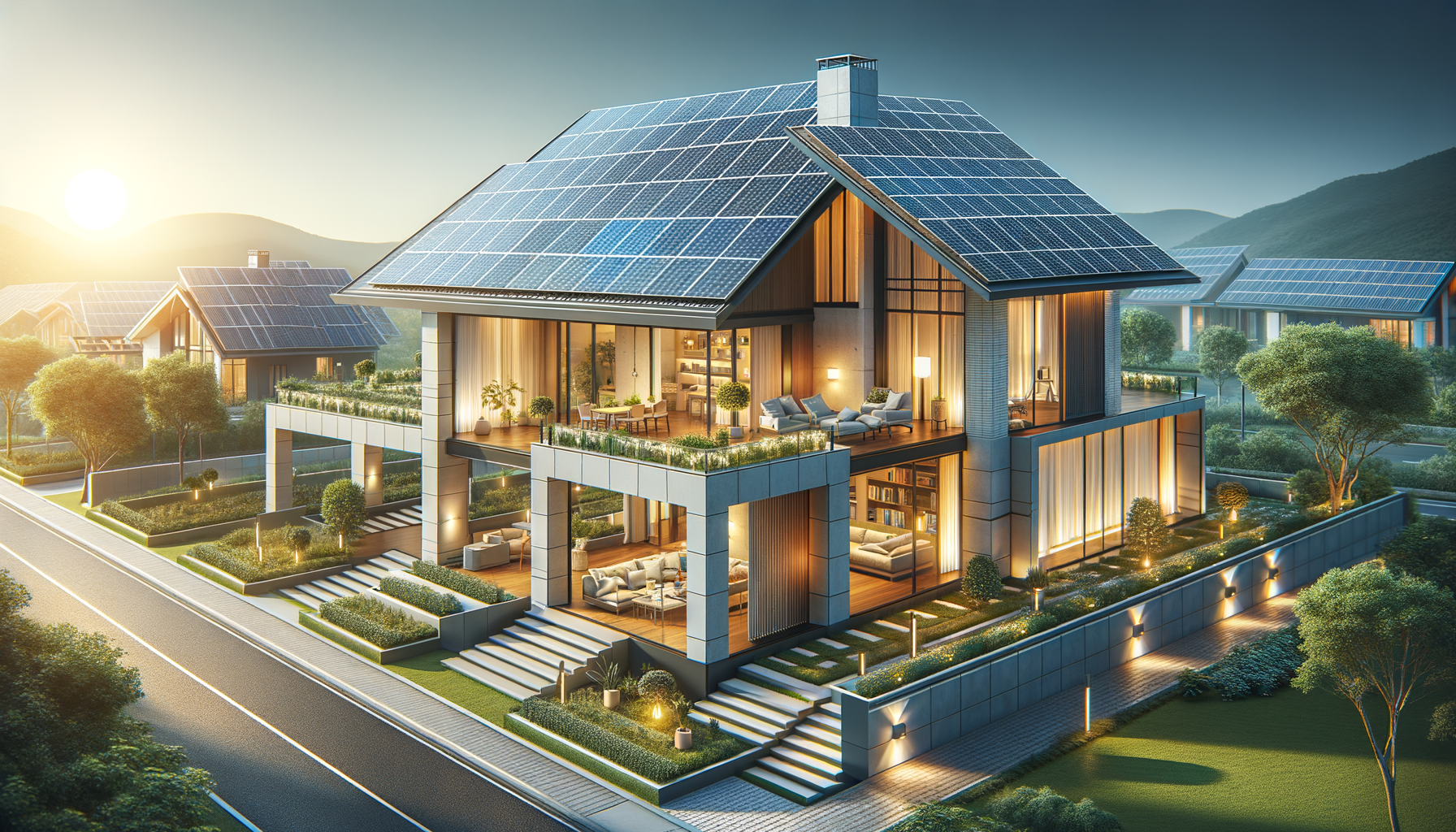Understanding Solar Roofing Systems
Solar roofing systems are an innovative solution in the field of renewable energy, combining the functionality of a traditional roof with the energy-generating capabilities of solar panels. Unlike conventional solar panels that are mounted on top of existing roofs, solar roofing systems integrate photovoltaic cells directly into roofing materials. This integration not only enhances the aesthetic appeal but also maximizes energy efficiency. The concept of solar roofing is gaining traction as more homeowners and businesses seek sustainable energy solutions. These systems are designed to harness sunlight and convert it into electricity, thereby reducing reliance on fossil fuels and decreasing carbon footprints. With advancements in technology, solar roofing systems have become more efficient, affordable, and accessible, making them a viable option for a wide range of applications.
Types of Solar Roofing Systems
There are several types of solar roofing systems available, each offering unique benefits and features. The most common types include:
- Solar Shingles: These are small, shingle-like panels that blend seamlessly with traditional roofing materials. They are ideal for homeowners looking for a subtle, integrated solar solution.
- Solar Tiles: Similar to solar shingles, these tiles are designed to replace traditional roofing tiles. They are often made from durable materials and can withstand various weather conditions.
- Solar Roof Panels: These are larger panels that can be installed over existing roofs. They are typically more visible than shingles or tiles but offer higher energy output.
Each type of solar roofing system has its advantages and is suited to different architectural styles and energy needs. Choosing the right type involves considering factors such as roof design, budget, and energy requirements.
Benefits of Solar Roofing Systems
The benefits of solar roofing systems extend beyond energy savings. Some of the key advantages include:
- Environmental Impact: By generating clean energy, solar roofing systems significantly reduce greenhouse gas emissions and reliance on non-renewable energy sources.
- Cost Savings: Although the initial investment can be substantial, solar roofing systems can lead to significant savings on electricity bills over time. Many regions also offer tax incentives and rebates to offset installation costs.
- Increased Property Value: Homes equipped with solar roofing systems often have higher resale values, as buyers are increasingly interested in sustainable living options.
- Energy Independence: Solar roofing systems provide a degree of energy independence, protecting homeowners from fluctuating energy prices and power outages.
Overall, solar roofing systems offer a sustainable and economically viable energy solution for both residential and commercial properties.
Challenges and Considerations
While solar roofing systems offer numerous benefits, there are also challenges and considerations to keep in mind:
- Initial Cost: The upfront cost of solar roofing systems can be high, making it a significant investment for many homeowners.
- Installation Complexity: Installing solar roofing systems requires specialized knowledge and expertise, which can limit options for installation providers.
- Weather and Location: The efficiency of solar roofing systems is heavily dependent on location and weather conditions. Areas with less sunlight may see reduced energy output.
- Maintenance: Although solar roofing systems are generally low-maintenance, they require periodic cleaning and inspections to ensure optimal performance.
Considering these factors is crucial when deciding whether solar roofing systems are the right choice for your property.
Future of Solar Roofing Systems
The future of solar roofing systems looks promising, with ongoing advancements in technology and increasing demand for renewable energy solutions. Innovations in materials and design are making solar roofing systems more efficient, durable, and aesthetically pleasing. As the cost of solar technology continues to decrease, it is expected that more homeowners and businesses will adopt solar roofing systems as a standard feature. Additionally, government policies and incentives aimed at promoting renewable energy are likely to further drive the growth of this sector. The integration of smart technology, such as energy storage systems and real-time monitoring, is also set to enhance the functionality and appeal of solar roofing systems. As society moves towards sustainable living, solar roofing systems are poised to play a crucial role in shaping the future of energy consumption.




Leave a Reply